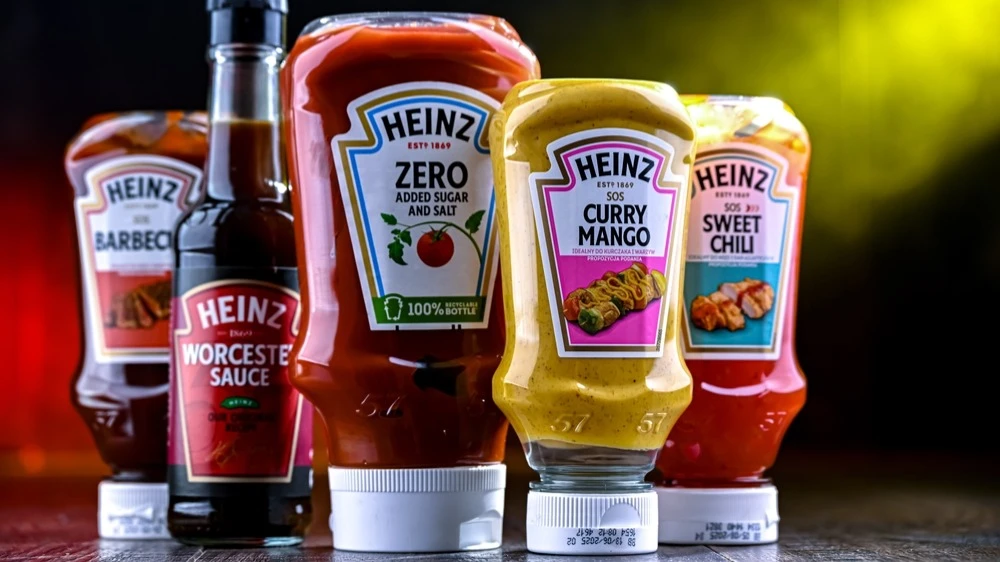Morgan Stanley believes that Kraft Heinz shares have bottomed out. Should we buy them?
Kraft Heinz shares have risen amid the company's split, but are still trading 12% cheaper than they were at the end of last year

Morgan Stanley refused from the advice to sell securities of food giant Kraft Heinz: now it takes a neutral position and expects growth of quotations by almost 12%. According to the analyst of the investment bank, the worst for the company's securities is over, and the decision to split it into two separate businesses may have a positive effect in the long term. Other analysts do not agree with Morgan Stanley: they, on the contrary, reduced their target prices after the announcement of the "divorce". In addition, the company's largest shareholder - legendary investor Warren Buffett, who was the main ideologist of the Kraft Heinz merger 10 years ago, also expressed his disappointment in this regard.
Details
Morgan Stanley analyst Megan Clapp raised her rating on shares of Kraft Heinz from Underweight (equivalent to a "sell" advice) to Equal Weight (equivalent to a "hold" advice) and her target price from $28 to $29, CNBC reports. Klapp's new target implies an 11.5% rise in the company's stock price from its Sept. 2 close. The analyst believes that the previous negative scenario for Kraft Heinz shares has largely played out: forecasts have become more balanced and operating margins are showing the first signs of stabilization. In her assessment, despite the expected pressure on earnings in 2026, the current valuation looks fair and the planned demerger of the company should mitigate risks. "We believe the worst is behind us, and after a 15% drop in stock prices since the beginning of the year, the balance of risk and return has become more attractive," Clapp emphasized in a note quoted by CNBC.
Morgan Stanley has upgraded its valuation of Kraft Heinz following the news that its business will be split into two separate businesses, CNBC notes. The analyst believes that in the long term, the separation of Kraft Heinz will become a driver of business growth and financial performance of the company.
What about the stock
In trading on September 3, Kraft Heinz shares jumped 3.5% to $26.9. Nevertheless, since the beginning of the year, the market value of the company has been in minus by more than 12%. For comparison: the main U.S. stock index S&P 500 for the same period, on the contrary, added about 9%.
What other analysts think
Not everyone on Wall Street has taken as optimistic a stance on the Kraft Heinz demerger as Morgan Stanley. In contrast, some analysts have lowered their target prices on the company's stock. BofA and Wells Fargo, for example, trimmed the target from $29 to $27, reiterating Underperform and Equalweight ratings, respectively. BofA noted that the company's largest shareholder, legendary investor Warren Buffett (who owns a 27.5% stake), has publicly stated his disappointment with the split of Kraft Heinz, which analysts at the investment bank said could put pressure on the company's stock price due to the potential threat of selling some of the shares Buffett owns. Wells Fargo added that the key question now is whether the "divorce" will create additional shareholder value.
An analyst at HSBC lowered his target price from $32 to $29 and Stifel lowered his target price from $30 to $28. Both maintained a neutral Hold advisory. Stifel analysts, too, cited the risk associated with Buffett's "possible selling of the stock by Berkshire" as the primary reason for the target price cut. In addition, the investment firm highlighted the "lack of near-term growth drivers" for Kraft Heinz.
In addition, Moody's decided on September 2 to review the company's credit rating with a possible downgrade. Moody's intends to assess both the potential benefits and risks of the announced separation of Kraft Heinz into two independent assets.
Context
Kraft Heinz announced on Sept. 2 that it was splitting into two independent businesses: the first will combine long-life products (Heinz sauces, Philadelphia cream cheese, and Kraft Mac and Cheese macaroni and cheese), while the second will include a portfolio of items such as Oscar Mayer sausages and hot dogs, Lunchables melted cheese slices, and Kraft Singles ready-to-eat snack kits. "Divesting" Kraft Heinz 10 years after the merger would effectively undo much of the $46 billion deal struck in 2015 that created one of the world's largest food companies, CNBC notes.
The merger of Kraft and Heinz in 2015 was initiated by Buffett and Brazilian investment firm 3G Capital. Kraft Heinz became the world's fifth-largest food maker with annual revenues of $28 billion. The idea was to improve profitability through scale, but the trend toward healthy eating hit sales of Kraft's processed goods. Attempts to revamp the product line increased costs but failed to generate growth. As a result, the company lost ground: by 2025, its revenue is estimated at $25 billion versus $26 billion in 2016, and earnings per share fell from $3.4 to $2.6.
This article was AI-translated and verified by a human editor
